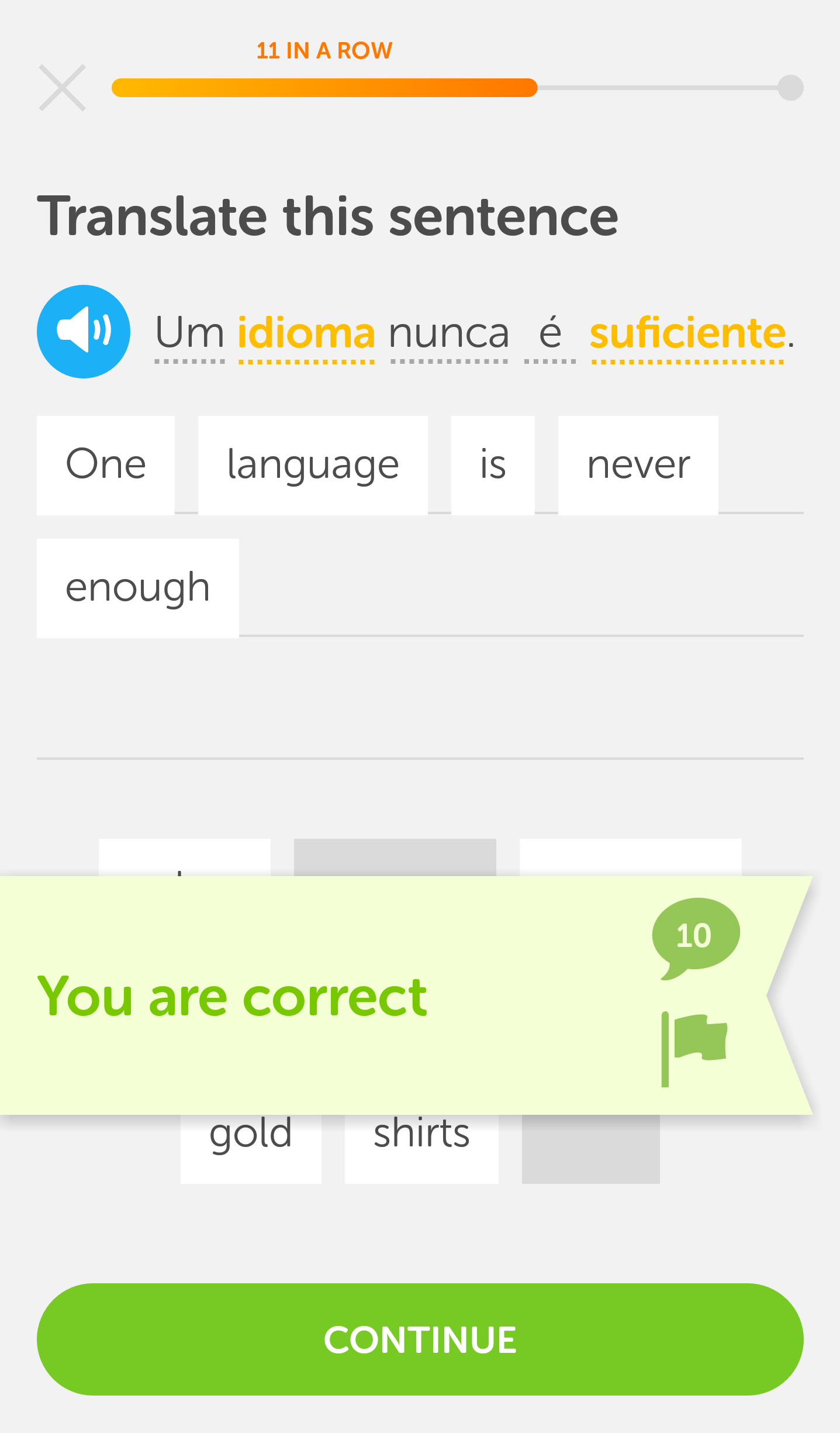If you’re an interpreter, you already know at least two languages. But have you ever wanted to learn an additional language? I know I had, but for some reason, I never got around to doing so until now. You see, recently, one of my coworkers told me that if I ever travelled to Brazil, I would love it there, but might have some issues since I don’t understand the language. Hmmm, I thought. I would at least want to know the basics of Portuguese if I were to travel there. Plus, I already wanted to learn a new language and Portuguese shares many similarities with Spanish, which I’m fluent in. Also, it would be fun to go up to my coworker and say something in Portuguese. Bring on the challenge!
Due to my limited schedule, I decided to look for an easy, interactive way to learn Portuguese. What I found was a mobile app called Duolingo. After about a month of daily practice on what The Wall Street Journal calls “far and away the best language-learning app”, I’m proud to say I now know the basics of Portuguese!
My experience with Duolingo varied, and I'd like to share some of the observations I made while using the app.
To start, here are some of the drawbacks I noticed:
Lack of Practice with Speaking While the app is great for practicing your writing and listening skills, it doesn’t focus as much on actually speaking the language, at least at the beginner level. You can repeat what you hear, but you don’t get any feedback on your pronunciation.
App Has More of a Learn-As-You-Go Approach Duolingo doesn’t explain how each letter is pronounced in Portuguese, nor does it explain how to conjugate verbs. Because of this, I recommend looking for additional material to supplement what you learn through the app.
On the other hand, I did find a few useful features:
“Test-Out” Option Let’s say you already know the basics of a language, and want to start at an intermediate instead of a beginner level. Duolingo gives you the option to “test out” and skip levels.
It Starts Out Easy and Builds Up Duolingo starts you out with the basics. With each lesson, you learn new words, but also review words from previous lessons. For example, they don’t teach you a long sentence right away like Os meninos bebem o suco de abacaxi na casa de minha irmã. (The boys drink the pineapple juice at my sister’s house.) Instead, first you’ll learn individual words, like o menino (the boy), os meninos (the boys), o suco (the juice), abacaxi (pineapple), irmã (sister), and then eventually build up to the sentence.
The Motivation Motivating yourself can sometimes be hard. The creators of Duolingo must be aware of that, then, since the app sends me a notification when it’s time for me to practice Portuguese. In addition, the app has you set a daily goal and you earn points called “lingots” when you reach it. The lingots can be used for lessons considered “bonus skills.” For example, I can use 30 lingots to learn some Portuguese idioms and proverbs. You can invite friends, and challenge them, too.
Over all, I agree with The Wall Street Journal. Duolingo is a fun (and rather addicting way) to learn a new language. With it being an app, it has its limitations, so don’t expect to become fluent while using it. But I would definitely recommend Duolingo as a supplement to learning a language with native speakers.
Quem quer aprender português comigo? Who wants to learn Portuguese with me? I challenge you to learn it, or the language of your choice.

